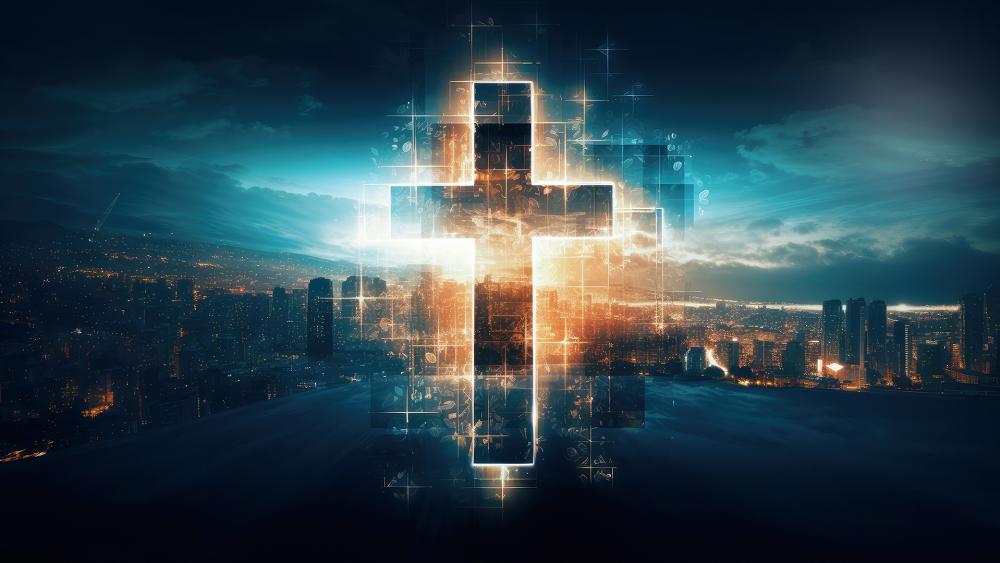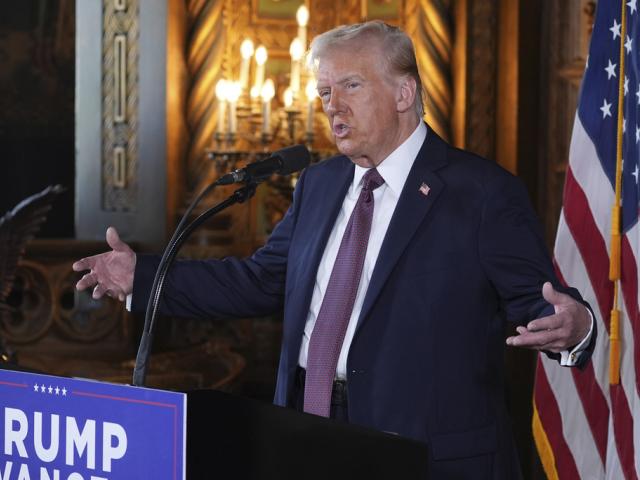As artificial intelligence shapes more aspects of life, its integration into systems of faith raises new theological questions, and experts say churches need to prepare.
The Barna Group, in partnership with Gloo – the faith-based technology platform connecting people to local churches, and others – surveyed ministry leaders to reveal what they think about AI & the Church.
"One of the questions we asked is, 'Do you think God can work through AI?' And we found a really large number of pastors who say, 'God CAN work through AI,'" said lead researcher Ashley Ekmay of the Barna Group.
Ekmay and other partners hope the survey helps church leaders be more informed on peer sentiment, hoping to spark a conversation that drives debate in the church around the responsible use of artificial intelligence. The overall embrace of AI in the digital world means it exists where you might least expect it.
"(AI) is everywhere, it's in social media – when you get on Netflix, it's in your home – digital assistants," Ekmay said.
As AI quietly integrates into nearly every aspect of our lives, researchers like Ekmay say it's time for the Church to join the conversation, which is why they're surveying how Christians feel about AI and its use in the church.
*** The A.I. Genie Is Out of the Bottle, but Can It Be Shifted from a Threat to a Gospel Tool?
Despite acknowledging God can work through AI, Ekmay said a lot of congregants aren't particularly trusting of AI in the Church, saying pastors in particular are the ones who exhibit the most concern.
Results from the study found 1-in-10 U.S. adults frequently use artificial intelligence. In the church, more than half of churchgoers believe AI is not good for use in church. The research suggests this shows significant hesitation or skepticism about its role in religious contexts.
"There is nothing new under the Sun, Ecclesiastes would say, and God is not surprised by AI," said Gloo's Chief Solutions Officer Brad Hill.
*** Please sign up for CBN Newsletters and download the CBN News app to ensure you keep receiving the latest news from a distinctly Christian perspective.***
Hill sees AI as the key to transforming Gloo's workflow, connecting people to local churches.
"We used to employ a manual process to look at a manual request and match it to the right church," said Hill. "So, we've taken that (process) from about 3-hours down to milliseconds."
Gloo is investing about $25 million towards implementing AI in the church, including research and development. Hill says the initiative will empower the Church to responsibly navigate and engage the landscape of AI. One of its first components will be the first-of-its-kind hackathon, rallying U.S. developers to help the advanced AI-based technology serve the faith ecosystem.
*** Putting Jesus in Times Square? Christian Company Uses AI to Increase Kingdom-Impact for Ministries
Hill and Ekmay agree, that if your church isn't talking about AI, it's time to put together a game plan.
"We've really been trying to invite pastors into a conversation that they may or sometimes may not want to have because it's understandable to the untrained eye that AI just feels like technology, and this is one more thing to learn," said Hill. "Pastors routinely tell us that they feel sometimes like they have to become experts on everything to everyone."
It's not just churches and businesses that risk falling behind, our government is also having trouble keeping pace with this fast-moving technology. Both the House and Senate are pushing bills that would study AI accountability and risk. For now, they've only collected pledges from AI companies to ethically self-regulate.
Recently, the world's first AI regulations are expected to be unveiled in the European Union. The AI Act will use a risk-based system, setting clear standards for AI developers. The proposal is currently undergoing the EU's legislative process. Once adopted, it could serve as a model for similar regulations globally.
Meanwhile, the Biden administration wants $2.6 billion from Congress to pay for a program that would make the government's AI resources more broadly available to researchers.
Dr. Subodh Kumar, a data scientist at Temple University, sees a lack of regulation as a combination of Congress needing a better understanding of AI while also allowing freedom for it to thrive in areas of national security and economic development.
"Both policymakers and organizations are equally responsible (regarding regulation)," said Dr. Kumar. "They both have to hold themselves to the highest standards."
In the meantime, while AI developers regulate themselves, users will need to do the same, not only protecting themselves but most importantly, their children.
"Parents are oversharing their kid's information," said Dr. Kumar. "And as a user, the best way to protect us right now is to put a control on that."
Did you know?
God is everywhere—even in the news. That’s why we view every news story through the lens of faith. We are committed to delivering quality independent Christian journalism you can trust. But it takes a lot of hard work, time, and money to do what we do. Help us continue to be a voice for truth in the media by supporting CBN News for as little as $1.












 Support CBN News
Support CBN News







